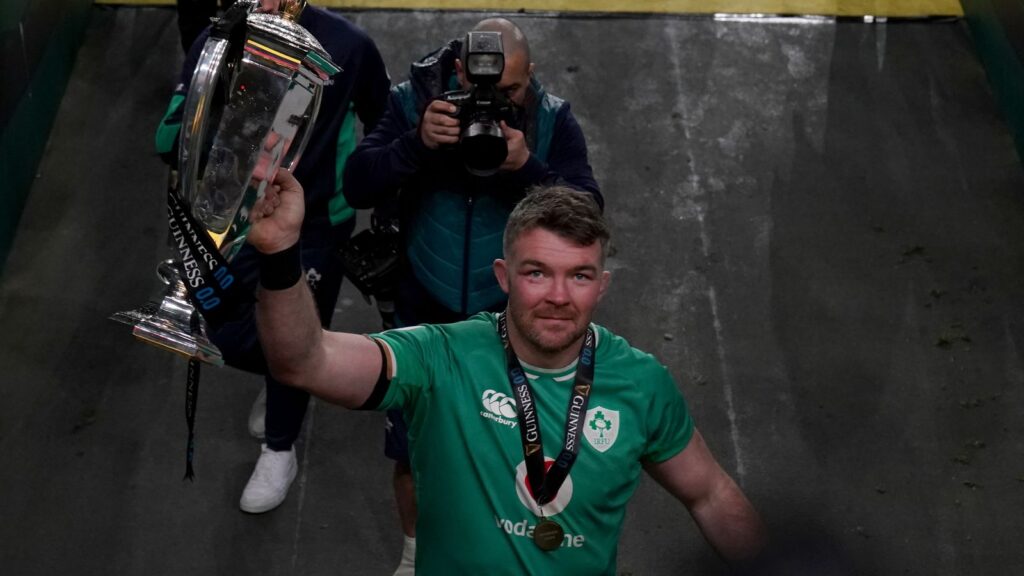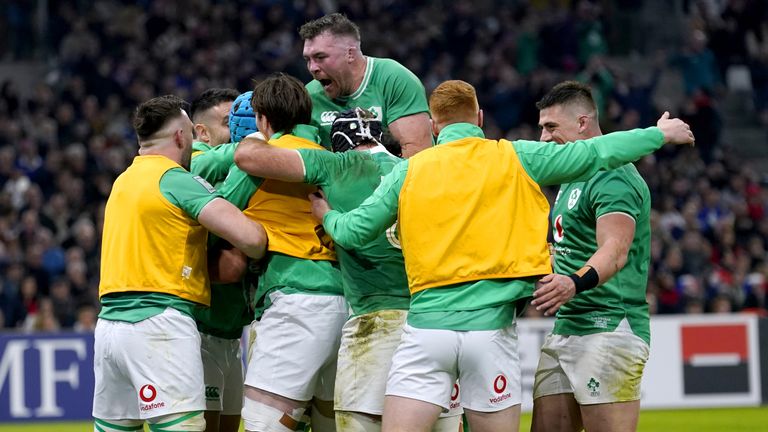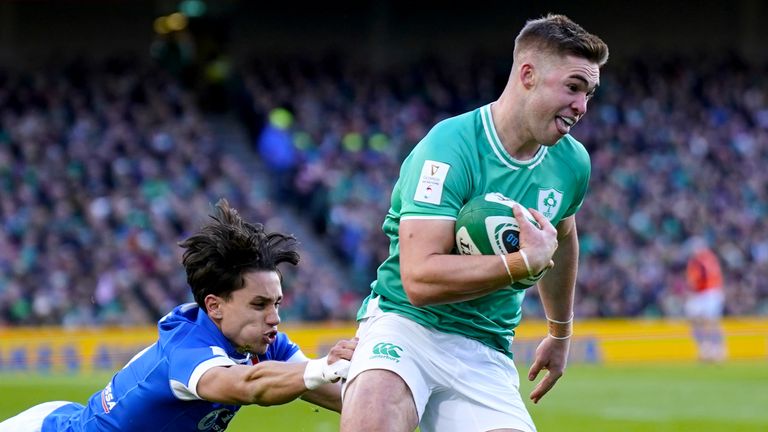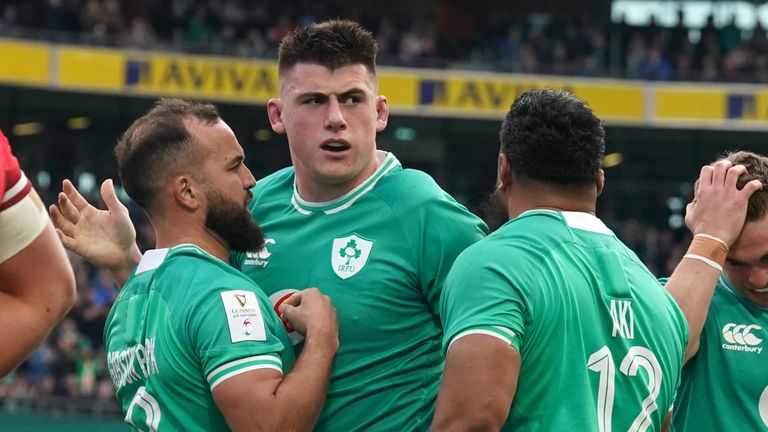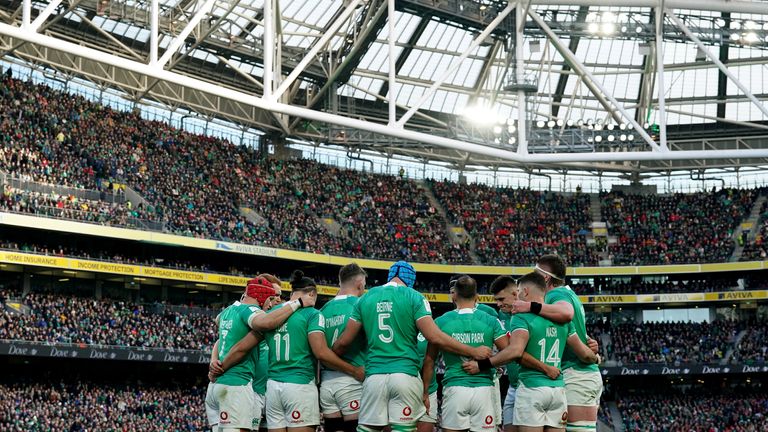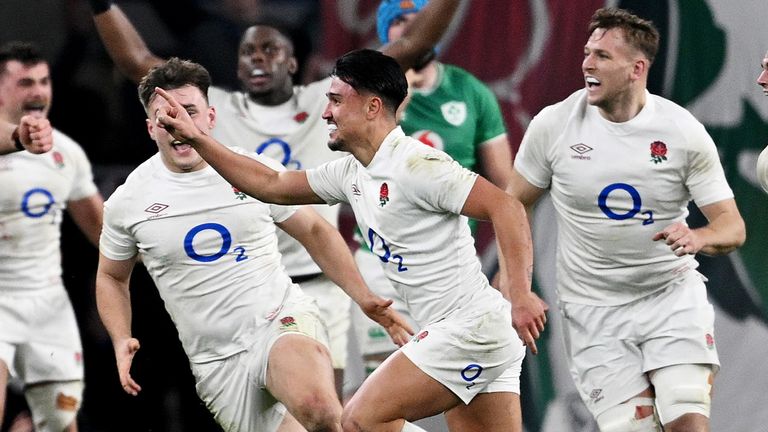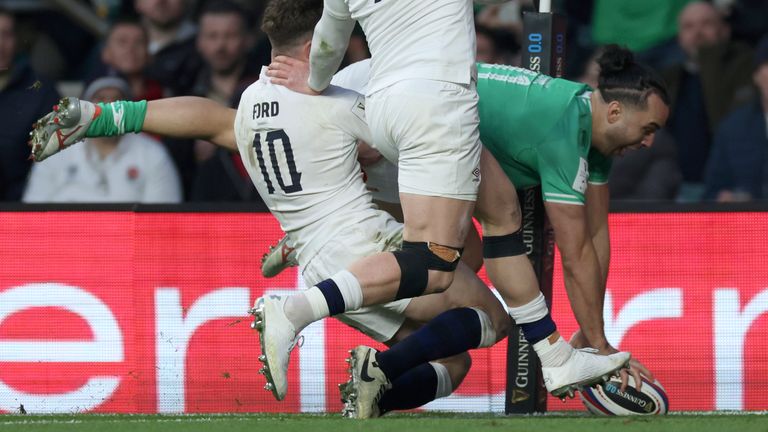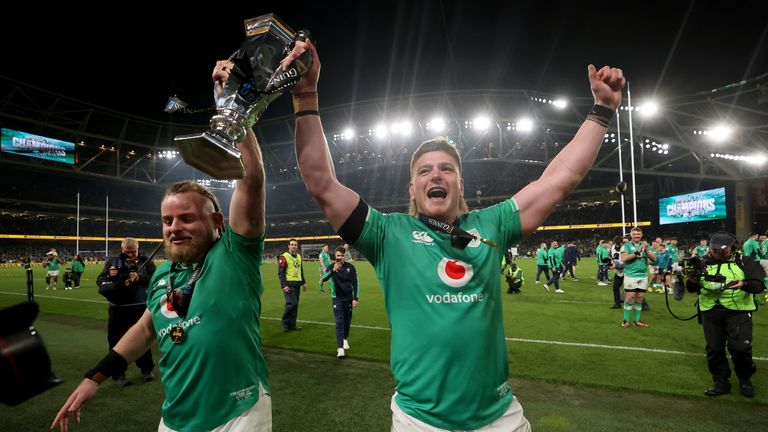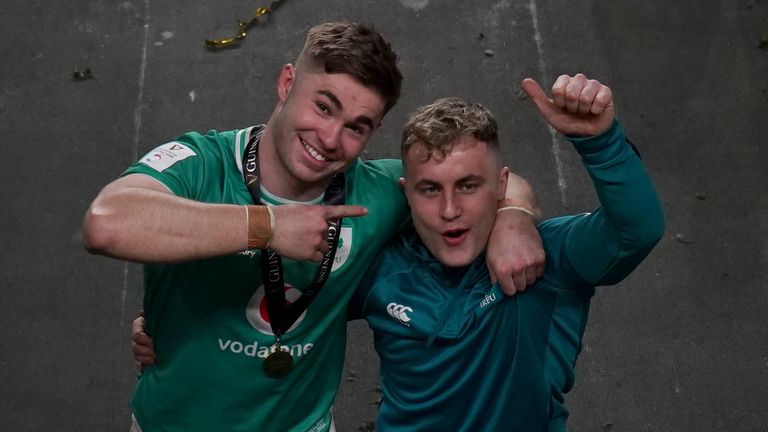We take a look at how Ireland clinched the 2024 Six Nations title, and after back-to-back championship wins, ponder can they keep such success going?
A Grand Slam slipped from their grasp late at Twickenham in Round 4, but Andy Farrell has now guided Ireland to Six Nations titles in 2023 and 2024, to sit alongside a Triple Crown in 2022.
Also in that time, Ireland won a Test series 2-1 away vs the All Blacks, beat the Springboks twice, held a world No 1 ranking between July 2022 and October 2023, and went on a 17-Test winning run.
Below, we look at how Ireland won the 2024 Six Nations title, and the factors and storylines that emerged through the championship, which pose interesting questions going forward…
A stunning start in Marseille, with a post-World Cup statement made
Ireland began life in the post-Johnny Sexton era in ideal fashion, as a terrific performance saw them to a bonus-point 38-17 victory over France in Marseille on the opening night.
Jamison Gibson-Park, Tadhg Beirne, Calvin Nash, Dan Sheehan and Ronan Kelleher scored tries at the Stade Velodrome against a French side who saw lock Paul Willemse shown a red card during the first half for two yellows – both high tackles.
Jack Crowley started nervously but grew in confidence and into the contest, kicking one penalty and five exquisite conversions, while also producing a gorgeous try assist for Beirne in a record points total and winning margin for Ireland in France.
While Les Bleus were clearly still hurting from a home World Cup quarter-final defeat to South Africa, Ireland – who themselves had suffered a devastating quarter-final loss to New Zealand – looked to barely skip a beat, in one of the best performances under Farrell to date.
From then on, Ireland were big Six Nations favourites, and for many, Grand Slam favourites.
Superb form saw Italy destroyed and nilled in Dublin
In Round 2, Ireland kept up their superb form as they stormed to a 36-0 victory over Italy in Dublin in a wholly-dominant display.
Tries from Crowley, Sheehan (two), Jack Conan and wings James Lowe and Nash sent Ireland to the top of the standings after two rounds, having picked up the maximum competition points on offer of two bonus-point wins.
Italy, who narrowly lost 27-24 to England in Rome a week previous, and would go on to beat Scotland and Wales, and draw with France in a game they should have won, were totally outclassed and struggled hugely for possession and territory in the contest, with Ireland looking superb.
Crowley, whose approach work and attacking touches verged on sublime at times, added two conversions with the boot in victory, with the one worry for Farrell a second-half leg injury to full-back Hugo Keenan.
Victory over Wales keeps Grand Slam quest on, but attack visibly stunted without Keenan
At home to Wales in Round 3, Ireland’s quest for back-to-back Six Nations Grand Slams remained on, as they secured a 31-7 victory over Warren Gatland’s side in Dublin.
Sheehan, Lowe, Ciaran Frawley and Beirne scored tries in the bonus-point success, with Crowley finishing 100 per cent with the boot, landing a penalty and all four conversions.
Yet, for all that the final score was comfortable, Ireland’s attack without Keenan suffered and was visibly stunted.
It was a fair summation that Ireland failed to reach the heights they displayed vs France and Italy in the opening two rounds.
Grand Slam dreams die at Twickenham vs sensational England
In Round 4, Ireland’s hopes of historic back-to-back Grand Slams were ended by England with the final kick at Twickenham, as Marcus Smith struck a last-gasp drop-goal to seal a 23-22 win.
England, who produced their best performance of the championship by a considerable distance, scored tries through Ollie Lawrence, George Furbank and Ben Earl.
Ireland scored their points through four Crowley penalties and two Lowe tries, but fell behind from a position of nine points ahead as England got the better of their lineout, two injuries to backs forced scrum-half Gibson-Park to the wing and skipper Peter O’Mahony was shown a costly yellow card.
England were sensational, and put in their best display with the ball since the 2019 Rugby World Cup semi-final win over New Zealand in Japan, but Ireland were well below their best levels on the day too.
A 6-2 bench split came back to bite them, but a potential blueprint to beat Ireland was perhaps laid out by England: play fast, extremely accurately, and go after the breakdown and lineout as hard as possible.
Ireland eventually see off stubborn Scotland to seal back-to-back titles for third time ever
And so to Saturday, where Ireland had to pick themselves up from the disappointment of Twickenham and go out to win a championship at home to the Scots.
In the end, Ireland secured back-to-back titles for just the third time in their history as Farrell’s side eventually saw off a stubborn Scotland 17-13.
Tries from Sheehan and Andrew Porter, added to by seven points via the boot of Crowley saw Ireland to victory, with Finn Russell notching two penalties in response for Scotland, and Huw Jones a late try.
Repeat outright championship victories in 1948 and 1949 and 2014 and 2015 have been added to after Ireland won a Grand Slam in 2023, and though last-gasp defeat at Twickenham denied them the chance of historic repeat Grand Slams, the title was duly wrapped up again.
Far from perfect, Ireland spurned a number of second half chances in attack, with Jordan Larmour – a late call-up with Keenan ruled out during the warm-up – Tadhg Furlong, Nash and Robbie Henshaw either knocking on or being held up just before or over the try-line.
They haven’t ended the championship in their best form, but end it by lifting the trophy. There are question marks as to whether skipper O’Mahony will retire or not, with more clarity on that yet to emerge, but with England and France to visit Dublin in next year’s Six Nations, Ireland, on the face of it, have a good chance to go on and make it three in a row – which they’ve never done.
Before that, there’s the matter of a two-Test tour to world champions South Africa in July, and an autumn schedule against the likes of New Zealand, Argentina and Australia.



